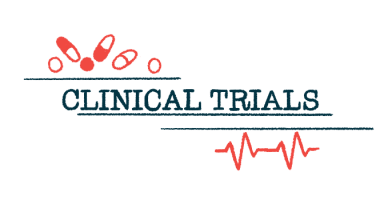CT1812 slows cognitive decline in proof-of-concept clinical trial
Alzheimer's therapy safe, shows benefits after 6 months of use in Phase 2 study

Treatment with CT1812, previously called Elayta, slowed the decline of cognitive function among adults with mild to moderate Alzheimer’s disease in a proof-of-concept clinical trial dubbed SHINE.
That’s according to results seen after approximately six months of treatment in the Phase 2 SHINE study (NCT03507790) at trial sites in the U.S., Europe, and Australia.
“The SHINE trial showed that after 182 days of treatment, [CT1812] demonstrated evidence of clinical improvements on cognition coupled with a favorable safety and tolerability profile,” Lisa Ricciardi, president and CEO of CT1812’s developer Cognition Therapeutics, said in a company press release.
Ricciardi added that the findings “will inform dose selection and provide a foundation for advancing [the therapy] to the next stage of clinical development.”
The company presented these results as a scientific poster at the recent Alzheimer’s Association’s International Conference.
Cognition Therapeutics planning to advance development of CT1812
The trial enrolled 153 adults with mild to moderate Alzheimer’s. The participants were randomly assigned to take the oral therapy at one of two doses (100 or 300 mg/day), or a placebo, for about six months. The study’s main goal was to assess safety, but a major secondary goal was to evaluate the impact of CT1812 treatment on measures of cognition.
“A key objective of this trial was to provide evidence of cognitive benefit potential with [CT1812] treatment, which we accomplished,” said Anthony Caggiano, MD, PhD, Cognition’s chief medical officer and head of research and development.
In patients given the placebo, scores on a cognitive test called the ADAS-Cog 11 worsened by 2.7 points on average after 182 days. In contrast, patients given CT1812 saw their scores worsen by an average of 1.66 points, representing a 39% slower decline.
Other measures of cognitive function also tended to worsen more slowly with CT1812 than the placebo, though not all the differences were statistically significant, meaning it’s mathematically plausible the difference could be due to random chance.
“We are pleased about the consistent cognitive effect and signals of functional benefit across the entire study,” Caggiano said. “We believe that the data supports the advancement of a 100mg dose of CT1812 in additional clinical trials in a mild-to-moderate patient population.”
Ricciardi noted that the magnitude of these cognitive improvements “are comparable in magnitude to what was achieved with currently approved antibodies, with great ease of administration as a once daily dose, and less patient burden.”
[The cognitive improvements seen with CT1812] are comparable in magnitude to what was achieved with currently approved antibodies, with great ease of administration as a once daily dose, and less patient burden.
The experimental treatment was generally tolerated well in the study. The most common safety issues reported included infections, injury, poisoning and procedural complications like falls and skin lacerations), digestive issues and headache.
The sole serious side effect judged to be related to CT1812 treatment was presyncope, which is lightheadedness upon rising from a seated or lying position. This side effect was reported only in patients given the higher dose. There also were some patients given the higher dose of CT1812 who showed signs of liver damage on lab tests, which subsided without serious injury after stopping treatment.
CT1812 is designed to block the formation of clumps, or oligomers, of amyloid-beta protein through a process called oligomer antagonism. Amyloid clumps are characteristic of Alzheimer’s disease and are thought to drive disease progression.
Ricciardi said the findings from SHINE “provide evidence that amyloid oligomer antagonism — a new and distinct mechanism for therapeutic intervention — may have a role as a monotherapy [on its own] or in a combination with approved drugs for the treatment of [Alzheimer’s] and related dementias.”
Cognition Therapeutics is currently running another trial called START (NCT05531656), testing CT1812 against a placebo in early Alzheimer’s. That trial is actively recruiting at sites across the U.S.
“Cognition is committed to advancing the field of research to provide clinical options for patients with neurodegenerative disease,” Ricciardi said.







